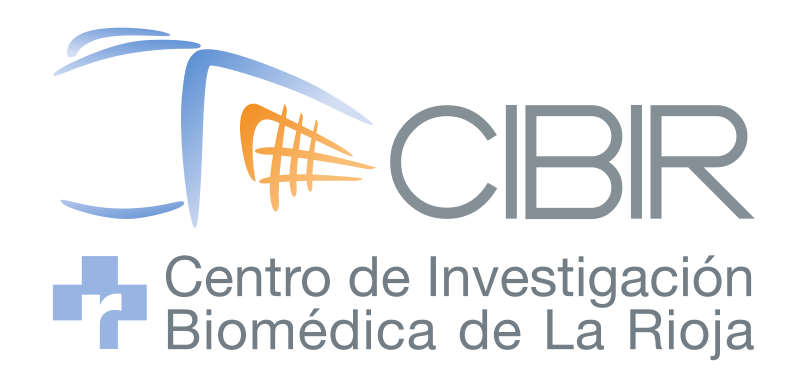
Team
- Postdoctoral Researcher: Rafael Peláez Cristobal
- Postdoctoral Researcher: Miriam Bobadilla Muñoz
- Predoctoral Researcher: Ana Pariente Delgado
- Predoctoral Researcher: Álvaro Pérez Sala
- Predoctoral Student: Oscar Rua Galisteo
- Predoctoral Student: Ana Oca
- Predoctoral Student: Alfonso Martín Carnicero
- Predoctoral Student: Natalia Ávarez Bandres
- Laboratory Technician: Rodrigo Ochoa Fernández
Research
Our research group is mainly oriented in:
- Search for new biomarkers that improve the diagnosis of high-impact diseases using new generation technologies ("-omics").
- Identification of the molecular mechanisms involved in high impact diseases which will allow to identify targets on which to develop and apply new treatments.
The use of biomarkers has led to a revolution in fields such as pharmacogenomics, which will allow, in the near future, to move towards personalized therapies. This line of research sets the basis for the use of these genomic techniques, for the first time in La Rioja, which can be applied to other areas of clinical research, including personalized diagnosis.
For the determination of new biomarkers the following process can be followed: Applying a drug to a group of patients, and determining those that respond appropriately to that treatment and those that do not.
By applying new generation technologies ("-omics") we try to obtain a pattern (eg, genetic) that is able to distinguish different groups of patients. This pattern will allow predicting which individuals will respond to this treatment and which will not, allowing the clinician to apply more personalized therapy. This pattern must be checked in an independent population and if the results obtained are as expected, the biomarker will be validated. An example of a commonly used biomarker is the expression of HER2 / Neu in breast cancer that is able to predict the success or failure of certain treatments.
The advantages offered by the biomarkers are, among others:
- Help improve prediction
- Discover new causes of illness
- Favor early diagnosis
- Monitor progression and regression
- Customize the treatment of the disease
- Assist in decision making by improving the risk / benefit ratio
General objectives:
- Define and standardize the methodology of analysis using -omics technologies. We will define isolation and sample processing protocols, experimental design (samples per group, how many groups...) and we will implant the latest ultrasequencing analysis protocols.
- Identify biomarkers in biological samples of patients suffering from neurodegenerative diseases and in particular Age-Associated Macular Degeneration that is the most important cause of blindness in the elderly in developed countries.
- Develop algorithms and statistical analysis protocols as well as global systems analysis to integrate the immense amount of data provided by the latest technologies.
- Analysis of expression patterns to establish detailed "interactomes" and deepen the knowledge of the physiological bases of pathologies related to the retina and other neurodegenerative diseases.
Other lines of research in progress:
- Study of the mechanism of action of new therapies for AMD
- Projects applied to health technology: 3D visualization and Virtual Reality Applications
- Identification of prognostic factors by mass sequencing in locally advanced melanoma.
- search of biomarkers and prognostic factors in colorectal cancer
- Use cold as therapy against traumatic damage
- Development of a prognostic and non-invasive tool for the prediction of the progression of breast cancer (Hyposens)
Work Team
Rafael Peláez Cristóbal
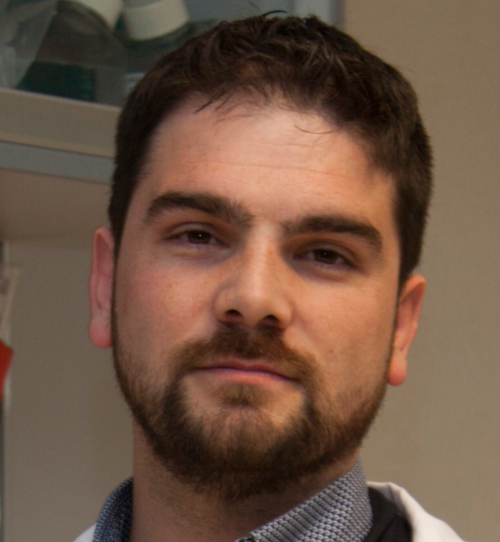
Rafael Peláez Cristóbal
Email: This email address is being protected from spambots. You need JavaScript enabled to view it.
Phone: +34 941 278 770 (Ext.:84866)
Biosketch
Dr. Rafael Peláez Cristóbal, got his degree in Biology at University of Oviedo in 2004 and he finished his Ph.D. studies in the Department of Biochemistry and Molecular Biology at the University of Oviedo (Asturias-Spain) in 2009. From 2010 up to 2014 he was working as Post Doctoral researcher in the Department of Oncology at CIMA (Centre for Applied Medical Research) supported by the Torres Quevedo program.
During his Ph.D., Rafael Peláez worked in genetic regulation of metabolism, particularly in the role of Hexokinase 2 (Hxk2) in the glucose repression pathway. He studied several aspects of the structural domains of the Hxk2, and its nucleo-citoplasmic traffic. In his postdoctoral stage in CIMA his main research area was the characterization of the role of integrins in the migration of lung cancer cells. He has also contributed to other projects, such as the characterization of Collapsin response mediator protein-2 (CRMP-2) during cell mitosis of lung cancer cells, and 3D cell migration of cancer cells in microfluidic devices.
From 2014 to 2015 he was working as biotechnology researcher in BIOMASS BOOSTER, SL in projects related to the genetic transformation of plants for the increased production of biomass.
In this moment he is working as Post Doctoral researcher in the Biomarkers and Molecular Signaling group at CIBIR (Center for Biomedical Research of La Rioja), where he participates in projects to develop and optimize nanoparticles with therapeutic activity in cellular and murine models of age-related macular degeneration, retinal injury and cancer.
As result of his work he has published several articles in scientific journals of high impact, as well as communications in national and international congresses. He has received some prizes for the best communication (Roche poster award of the Spanish Society of Biochemistry and Molecular Biology) and the extraordinary P.hD prize of Biochemistry and Molecular Biology in the year 2011. Along these years he has been meritorious to obtain a positive evaluation for Assistant Professor Contracts by the National Agency of Evaluation of Quality and Accreditation (ANECA).
Ana Pariente Delgado
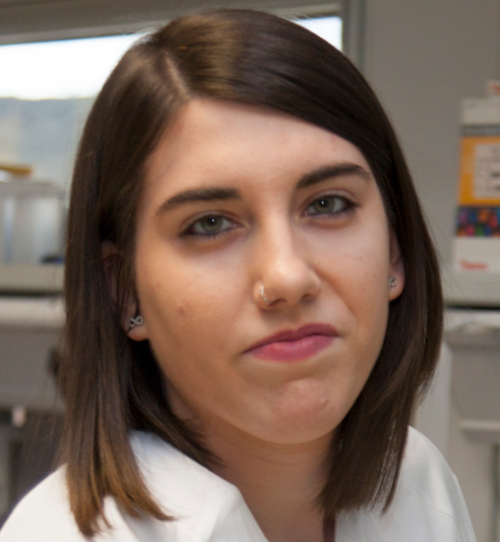
Ana Pariente Delgado
Email: This email address is being protected from spambots. You need JavaScript enabled to view it.
Phone: +34 941 278 770 (Ext.:84866)
Biosketch
Ana Pariente Delgado got her degree in Biotechnology in 2014 at the University of León.
During the last course, she developed her end-of-degree’s project at the Institute of Molecular Biology, Genomics and Proteomics (INBIOMIC) under the supervision of Dr. Fernández-Cañón.
Later, she obtained her Master Degree in Cancer Biology and Clinic at the Salamanca Cancer Research Center (2015), working in the laboratory of Dra. Sacristán.
In October of 2016, she joined as a pre-doctoral researcher in the Biomarker and Molecular Signaling group led by Dr. Larráyoz of the Biomedical Research Center of La Rioja (CIBIR).
Álvaro Pérez Sala

Álvaro Pérez Sala
Email: This email address is being protected from spambots. You need JavaScript enabled to view it.
Phone: +34 941 278 770 (Ext.:84866)
Biosketch
He studied Computer Science at University of La Rioja where he was graduated in July 2014. While he was finishing his degree, he participated as part of the development team in the R&D project “Embedded engineering learning platform (E2LP)”. That project was financed by the European FP7 program.
Having reached the project finishing, in late 2014, he joined to Center for Biomedical Research of La Rioja (CIBIR) as R&D Software Engineer participating in IT health applied projects. In 2016 he started his biomedical engineering master degree at University of Basque Country combined with his work at CIBIR.
Now, he is working as Biomedical Engineer at CIBIR in IT health applications researching line.
Alvaro Pérez was recognized with the Prize for the Best Academic Record in Computer Science 2014 by the University of La Rioja. This year he also received the second prize for his end of degree project “Augmented Reality Interfaces Applications” by the Computer Engineering Association of La Rioja.
Oscar Rúa Galisteo

Oscar Rúa Galisteo
Assistant of ophthalmology, Hospital San Pedro
Phone: +34 941 278 855
Ana Oca

Ana Oca
Assistant of ophthalmology, Hospital San Pedro
Phone: +34 941 278 855
Alfonso Martin Carnicero
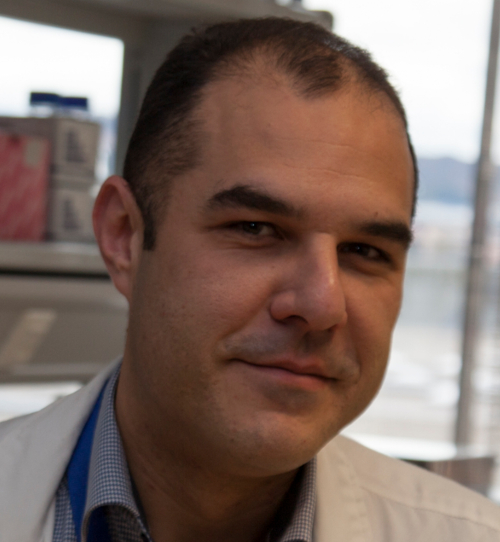
Alfonso Martin Carnicero
Phone: +34 941 298 000 (Ext.:81084)
Biosketch
Graduated in Medicine by the University of Salamanca (1999-2005).
Resident of medical oncology at the University Hospital Marqués de Valdecilla of Santander (2006-2010).
Master's degree in support treatment and palliative care in the cancer patient by the University of Salamanca (2008-2009).
Master's degree in clinical and applied research in oncology by the University San Pablo CEU (2014-2015)
Diploma of Advanced Studies (DEA) by the University of Cantabria (2009)
Since 2010, he has been working in the medical oncology department of the Hospital San Pedro of Logroño, focusing his work on digestive tumors, gynecological tumors and melanoma.
Currently undertaking doctoral studies at the University of La Rioja.
Collaborator in several scientific projects of the Biomedical Research Center of La Rioja (CIBIR)
Natalia Álvarez Bandres
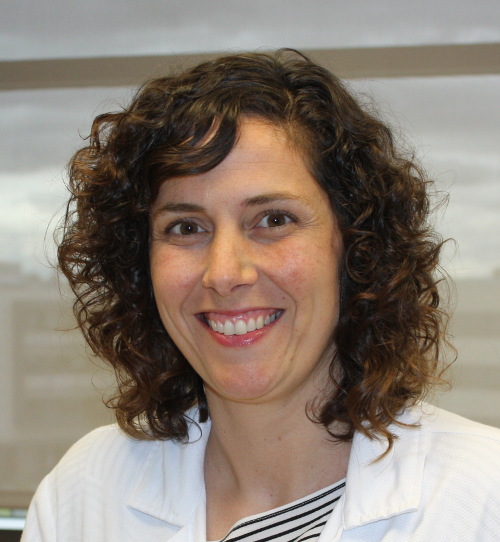
Natalia Álvarez Bandres
Rehabilitation Service Associate, Hospital San Pedro
Phone: +34 941 278 855
Miriam Bobadilla Muñoz

Miriam Bobadilla Muñoz
Email: This email address is being protected from spambots. You need JavaScript enabled to view it.
Phone: +34 941 278 855 (Ext.: 84868)
Biosketch
Miriam Bobadilla Muñoz graduated in Biology and Biochemistry from the University of Navarra in 2007. Later, she obtained a Cellular and Molecular Biology Master's Degree in the same university in 2008. During this time, she studied LMO2 expression and its role as a prognostic marker in leukemia, in Dr. Martinez-Climent´s laboratory.
Doctor in Biochemistry from the University of Navarra (2012). She obtained her phD in the cell therapy laboratory at the Center for Applied Medical Research (CIMA), supervised by Dr. Felipe Prosper and Dra. Ana Perez-Ruiz. During this time, she studied the satellite cell biology, mainly in degenerative diseases such as Duchenne muscular dystrophy. Also, during those years she worked as an assistant professor in the microbiology department at the University of Navarra.
From 2013 to 2019, she has worked as a postdoctoral researcher in the regenerative medicine area at the Center for Applied Medical Research (CIMA). She focused her studies on cell aging.
In 2019 she joined to the angiogenesis group at the Biomedical Research Center of La Rioja (CIBIR). During this time, she studied the mechanisms of oxidative stress in the brain and the use of natural antioxidants as a strategy for neurodegenerative diseases prevention.
Currently, she is part of the Biomarkers and Molecular Signaling research group led by Dr. Ignacio Larrayoz at the CIBIR.
During these years, she has acquired extensive experience in handling laboratory animals. She has published several research articles in high-impact journals, national and international communications. She has also participated in more than 10 national and international research projects, financed by both private and public funds.
Publications
Rodrigo Ochoa Fernández
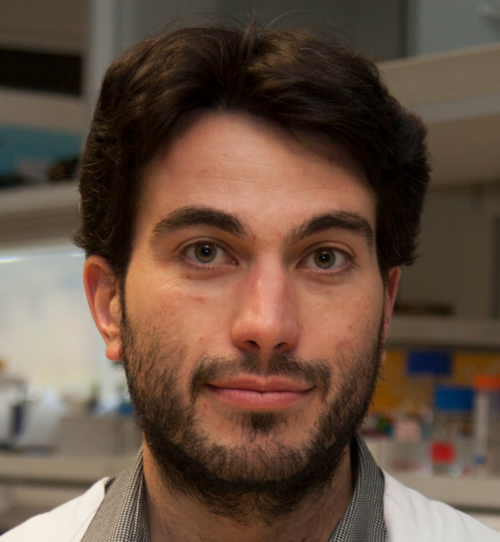
Rodrigo Ochoa Fernández
Email: This email address is being protected from spambots. You need JavaScript enabled to view it.
Phone: +34 941 278 855 (Ext.:84866)
Biosketch
Rodrigo finished his vocational degree in Clinical Diagnostic Laboratory in 2005 and Anatomical Pathology and Cytology in 2008, making his practical training in the University of Cantabria, the University Hospital Marqués de Valdecilla and the University of Portsmouth.
After a short period working in a biopharmaceutical company of cell therapy and in the Department of Biochemistry and Molecular Biology of the University of Oviedo, he worked at the Department of Rheumatology of the University Hospital Marqués de Valdecilla – IDIVAL and afterwards in the Institute of Biomedicine and Biotechnology of Cantabria (IBBTEC).
Recently he has joined to the Biomarkers and Molecular Signaling group in the Center for Biomedical Research of La Rioja (CIBIR).
